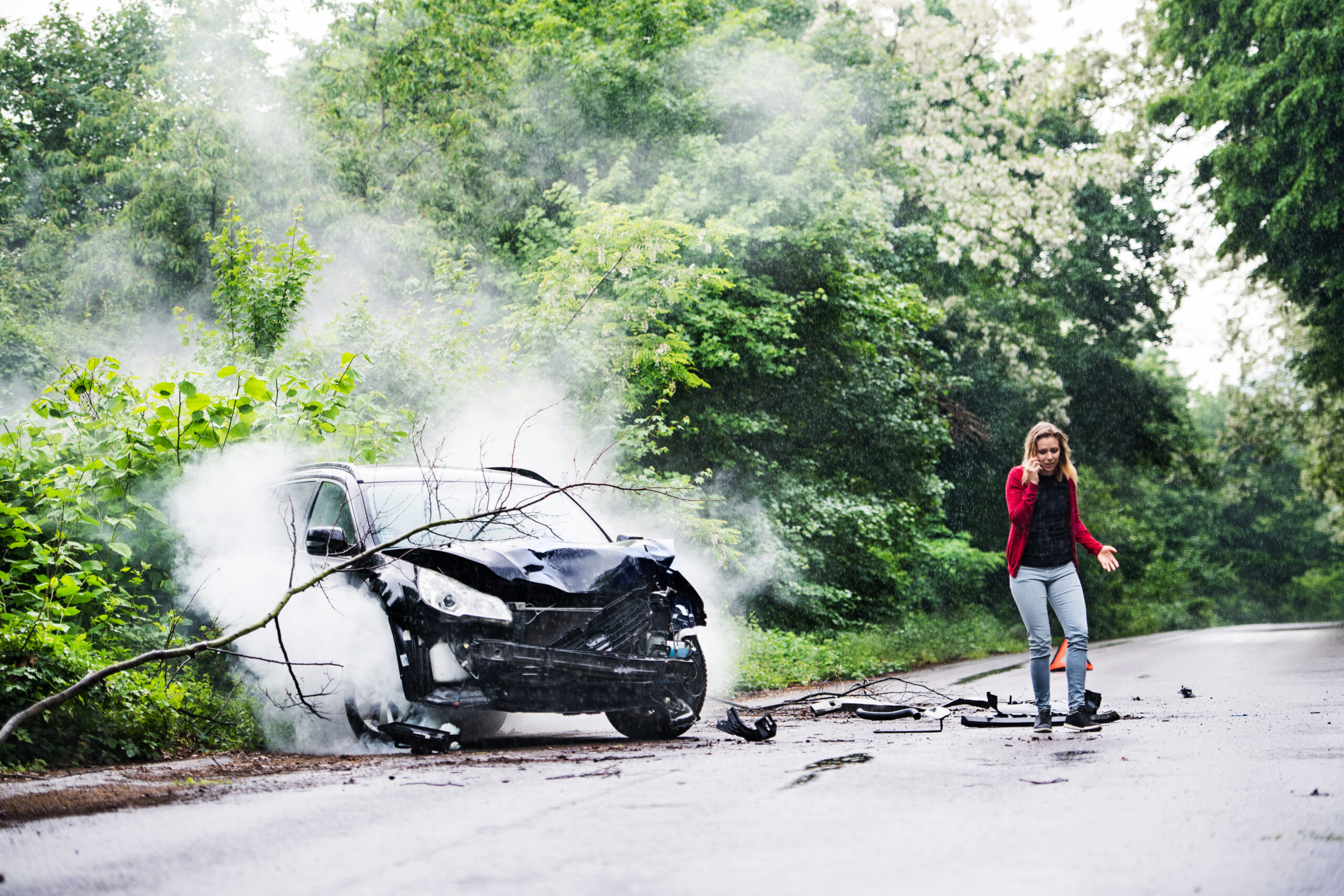Las Vegas saw 40.8 million visitors in 2023 alone. Of those, 50% drove their own vehicle while in the city, and another 13% rented a car. At least some of these drivers may have been from Reno, Elko, or other cities in Nevada. But these numbers still mean the valley had as many as 25.7 million out-of-state motorists that year.
Nevada’s crash statistics do not identify how many traffic crashes involved out-of-state drivers or vehicles. But based on visitor statistics, an average year probably has thousands of collisions between local and out-of-state vehicles.
Insurers usually treat all accidents the same. Occasionally, you might run across a wrinkle that complicates your claim. Here’s what you need to know.
What to Do After a Collision With an Out-Of-State Vehicle
Nevada law covers vehicle crashes within the state regardless of the driver’s or vehicle’s origin. Thus, drivers with licenses or residences outside the state must still follow Nevada’s traffic laws while driving there. Some traffic laws that might differ between states include:
- Turning right on red lights
- Moving into or across bike lanes
- Using the left lane as a travel lane
If someone causes a crash by violating Nevada laws, they will bear the blame for the crash even though the action was legal at home.
Importantly, states also differ in their post-crash reporting requirements. Many states only require drivers to report fatal or non-fatal injury crashes. However, Nevada requires drivers to report to the police all crashes that cause death, injury, or property damage.
Reporting a crash
Nevada law also requires drivers to perform the following tasks after a crash:
- Stop at the accident scene
- Assist anyone injured
- Exchange identifying information with all other drivers
Prosecutors could charge anyone who fails to meet these requirements with a hit-and-run. All states have a similar offense.
Keep in mind that Nevada law does not require drivers to exchange insurance information after crashes. Instead, it requires drivers to provide this information on a crash report. In most cases, the police officer investigating the crash will ask the drivers for their insurance cards and enter the information into the accident report form.
How Out-of-State Insurance Works
Insurance is regulated by the states. Even though most people have policies from national companies, the policies are written to comply with the policyholder’s home state. After a crash, the differences between these policies can affect the injury compensation you can recover.
Drivers are not required to buy insurance that complies with local laws when they cross state lines. For example, vehicle owners in Nevada have higher policy limits than those in Arizona. But when an Arizona driver crosses into Nevada, their compliance with Arizona law will be enough while the driver is temporarily in Nevada.
As a result, the out-of-state driver might not have enough insurance to cover the following losses in Nevada:
- Past and future medical expenses
- Wage losses
- Reduced future earnings
- Out-of-pocket expenses, such as ambulance fees
One way differing policy limits can affect compensation after a crash is through bodily injury liability (BIL). Arizona only requires vehicle owners to carry $15,000 per person up to $30,000 per accident in BIL. Nevada, by contrast, requires $25,000 per person and up to $50,000 per accident in BIL coverage.
This difference might not matter in a minor crash. But if you suffer a serious injury, the difference in coverage might impact your ability to get necessary treatment and therapy.
Claims Against Out-of-State Drivers
Whether the out-of-state driver’s policy was issued by a national or local insurer, it covers the Nevada crash. In other words, insurance coverage does not stop at the border. You and your injury lawyer will file a claim with the insurer with supporting documents, like your medical records.
Even though you and the driver live in different states, an insurance adjuster will have no difficulty investigating your claim. Most documents are available electronically, and you or your lawyer can upload them to the insurance company’s claim system.
The insurer may ask you to provide a recorded statement by phone. However, this request happens in all cases, not just those involving a crash in another state. You should consult a lawyer before providing a recorded statement since adjusters can twist your words in an attempt to shift blame to you.
If the insurer accepts your claim, the adjuster can negotiate a settlement with your lawyer. If the insurer denies your claim, your lawyer can respond with evidence to try to overcome it.
When you hit an impasse while negotiating the settlement or overcoming a denial, your lawyer may recommend filing a lawsuit. The location of your lawsuit will depend on complex rules applied to the facts of your case.
Contact an Experienced Injury Lawyer Today
At the Hill Firm, our skilled team has extensive experience navigating the complex legal landscape of vehicle accidents involving out-of-state drivers. We can evaluate the unique details of your case and guide you on the best path forward. Contact us to speak to a seasoned car accident lawyer today.

